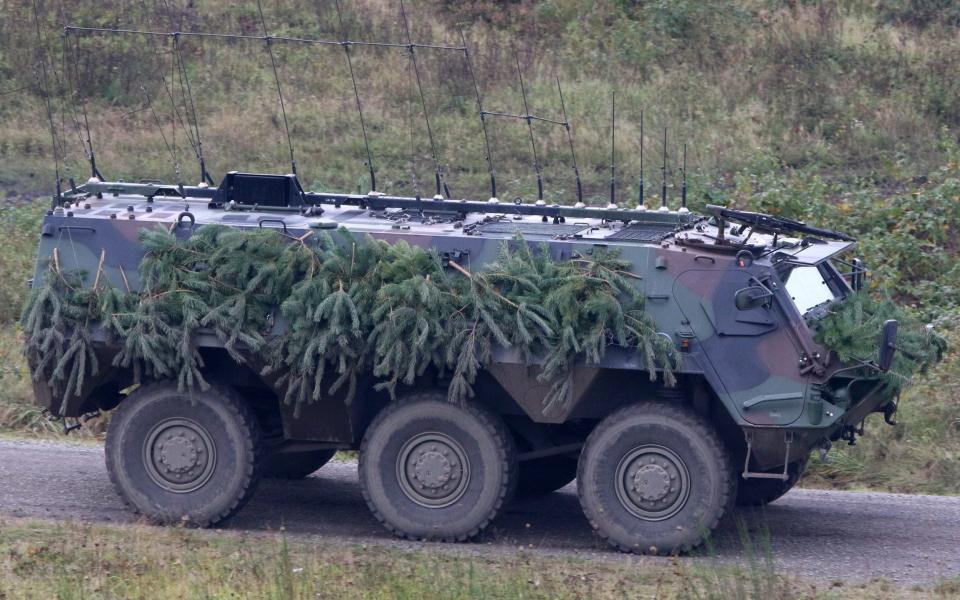Germany refuses to ‘plunder its own military’ for the sake of Ukraine

Germany has said it doesn’t want to “plunder its own military” as it refuses to send armoured vehicles to Ukraine.
Berlin has rejected a request to deliver around 200 Fuchs armoured personnel carriers to Kyiv, citing a need to preserve the country’s own security interests.
“We support Ukraine with everything that is possible and responsible. But we have to ensure Germany’s ability to defend itself,” Christine Lambrecht, the German defence minister, told the German Press Agency on Thursday.
“It is therefore irresponsible to plunder the Bundeswehr (German military), especially in these times, and even to ignore the military advice of the General Inspector.”
Ms Lambrecht said her decision was made pursuant to military advice.

General Inspector Eberhard Zorn – Germany’s highest-ranking soldier – has previously said the military did not have enough leeway to let Ukraine have the vehicles, although it is unclear exactly how many the German military have in stock.
It comes as German MPs are set to limit their consumption of hot water in anticipation of an energy shortage over the winter months.
Members of the German parliament are expected to set an example to the public as electricity prices soar to record highs and households are encouraged to save as much heat and power as possible.
The move will see all 1,800 instant boilers that provide warm water for bathroom sinks in Berlin’s parliament buildings switched off, according to a report in Der Tagesspiegel.
Germany’s opposition Christian Democrats (CDU) wanted the Government’s support in pushing through a vote in parliament on Thursday to allow for the short-term delivery of the personnel carriers.
The CDU said it was acting in accordance with a previous commitment by the German government made at the end of April to supply Ukraine with heavy weapons.
“For the Ukrainian army, it is a matter of quickly sending reliable material that can be deployed immediately on the front line. Such material is in the Bundeswehr’s inventory and is to be withdrawn from use by the Bundeswehr: the Fuchs armoured transport vehicle,” the application reads.
Olaf Scholz, the German chancellor, has come under consistent criticism at home and abroad for failing to adequately arm Ukrainian forces, despite continued pledges of military and non-military support.
The first delivery of heavy weapons from Germany to Ukraine arrived on June 21, four months after Russia’s invasion began.
In addition to seven German-made howitzers (Panzerhaubitze 2000), the delivery included 14,900 anti-tank mines, 500 Stinger air-defence missiles, 2,700 anti-aircraft missiles as well as hand grenades and artillery for handguns.
Volodymyr Zelensky, the Ukrainian president, said in his nightly address on Wednesday evening that Western-supplied weapons were “finally” making a significant impact in his country’s war against Russia.
“Finally it is felt that the Western artillery – the weapons we received from our partners – started working very powerfully,” he said.

 Yahoo Movies
Yahoo Movies 